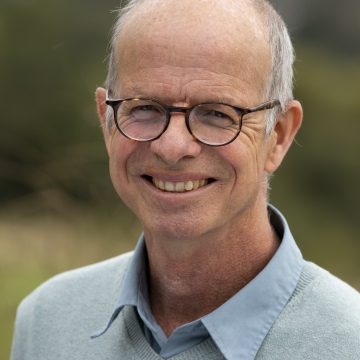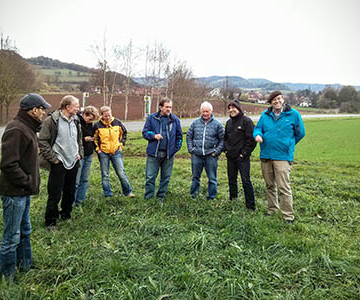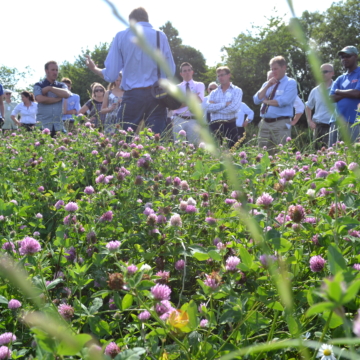Key research questions
- How do we develop resilient and productive food systems that provide low-impact, high-quality food through the development of sustainable food and farming practices?
- As measures of health, how can we successfully monitor the public goods delivered by farming systems in the UK?
- How can we support the development of best practice in decision-making for healthy and sustainable farming systems?
- How can farmers monitor, improve and maintain good soil health in the context of sustainable production?
The importance of healthy and sustainable food systems
The increasing pressures on our food systems – including rising populations, climate change, biodiversity loss, soil degradation, environmental contamination, rising populations, and global health crises – call for a comprehensive and holistic systems approach to finding solutions. That means linking up individual disciplines and collaborating towards transformative change.
Our research in this area focuses on facilitating the development of healthy and sustainable farming and food systems. This ranges from growing regional and national good practice networks with stakeholders to developing online decision-aids.
We focus on testing, monitoring, and demonstrating agroecological practices and have developed a well-used method for sustainability assessment: the Public Goods (PG) Tool. The PG Tool has been developed and modified for different food and farming system contexts during the past decade.
Working on the principle that “The health of soil, plant, animal and man is one and indivisible”, we understand the importance of a healthy soil as the foundation of a healthy, sustainable farm system and as such work to support farmers’ understanding of soil health through practical assessment ensuring a “living soil”.





